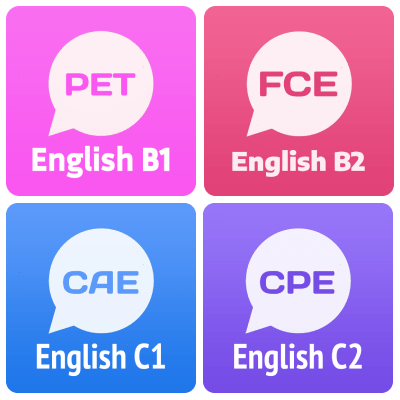Past Perfect or Past Simple?
This distinction clarifies when to use the Past Perfect (for earlier past actions) and the Past Simple (for later past events in a sequence).
Back
Learn how to choose between the Past Simple and the Past Perfect
When Should I Use The Past Simple Tense?
Finished actions, states or habits in the past.
1. We use it with finished actions, states or habits in the past when we have a finished time word (yesterday, last week, at 2 o'clock, in 2003).
- I went to the cinema yesterday.
- We spent a lot of time in Japan in 2007.
2. We use it with finished actions, states or habits in the past when we know from general knowledge that the time period has finished. This includes when the person we are talking about is dead.
- Leonardo painted the Mona Lisa.
- The Vikings invaded Britain.
3. We use it with finished actions, states or habits in the past that we have introduced with the present perfect or another tense. This is sometimes called 'details of news'.
- I've hurt my leg. I fell off a ladder when I was painting my bedroom.
- I've been on holiday. I went to Spain and Portugal.
4. For stories or lists of events, we often use the past simple for the actions in the story and the past continuous for the background.
- He went to a café. People were chatting and music was playing. He sat down and ordered a coffee.
Unreal or imaginary things in the present or future.
5. We use the past simple to talk about things that are not real in the present or future. So we use it with the second conditional and after words like 'wish'.
- If I won the lottery, I would buy a house.
- I wish I had more time!
When Should I Use The Past Perfect Tense?
1. A finished action before a second point in the past.
- When we arrived, the film had started (= first the film started, then we arrived).
2. We usually use the past perfect to make it clear which action happened first. Maybe we are already talking about something in the past and we want to mention something else that is further back in time. This is often used to explain or give a reason for something in the past.
- I'd eaten dinner so I wasn't hungry.
- It had snowed in the night, so the bus didn't arrive.
3. If it's clear which action happened first (if we use the words 'before' or 'after', for example), the past perfect is optional.
- The film started before we arrived / the film had started before we arrived.
4. Something that started in the past and continued up to another action or time in the past. The past perfect tells us 'how long', just like the present perfect, but this time the action continues up to a point in the past rather than the present. Usually we use 'for + time'. We can also use the past perfect continuous here, so we most often use the past perfect simple with stative verbs.
- When he graduated, he had been in London for six years. (= He arrived in London six years before he graduated and lived there until he graduated, or even longer.)
- On the 20th of July, I'd worked here for three months.
5. To talk about unreal or imaginary things in the past. In the same way that we use the past simple to talk about unreal or imaginary things in the present, we use the past perfect (one step back in time) to talk about unreal things in the past. This is common in the third conditional and after 'wish'.
- If I had known you were ill, I would have visited you.
- She would have passed the exam if she had studied harder.
- I wish I hadn't gone to bed so late!
